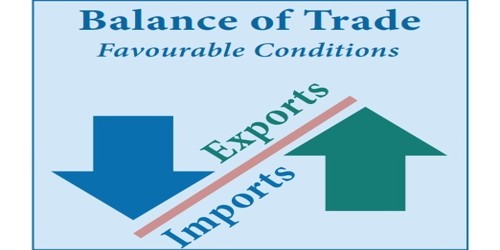
Protecting the things we value is essential, and insurance coverage is a crucial aspect of that protection. No one can predict what may happen in the future, so it's crucial to ensure you are adequately protected against unexpected events. Regular policy reviews are necessary to keep up with changes in your circumstances, evolving needs, and potential gaps in coverage.
In this section, we will discuss the importance of regularly reviewing your insurance coverage and policies to ensure you are fully protected. We will provide insights into understanding the different types of insurance, how to choose the right insurance company, and how to evaluate your current coverage. We will also explain how to assess your insurance needs, understand policy terms and conditions, and update your policies to reflect any changes in your circumstances or coverage needs. Maximizing discounts and savings, making regular premium payments, and reviewing and adjusting coverage limits are also critical factors to consider.
Key Takeaways:
- Regularly reviewing your insurance policies is essential to ensure you are adequately protected.
- Understanding the different types of insurance, choosing the right insurance company, and evaluating your current coverage are crucial steps.
- Assessing your insurance needs, understanding policy terms and conditions, and updating your policies are important considerations.
- Maximizing discounts and savings, making regular premium payments, and reviewing and adjusting coverage limits are critical factors to keep in mind.
- Working with an insurance agent can help you navigate policy reviews and ensure comprehensive coverage.
Understanding the Different Types of Insurance
Insurance is essential for protecting yourself, your loved ones, and your assets in case of unforeseen events. There are various types of insurance, each serving distinct purposes. Here's an overview of the four main types of insurance:
Car Insurance
Car insurance is mandatory in almost all states and protects you financially in case of a car accident or theft. It typically covers damage to property and bodily injury. There are different types of car insurance, like liability, collision, and comprehensive. Liability insurance covers damages that you cause to others in an accident, while collision insurance covers damages to your car. Comprehensive insurance protects you from theft, damage due to natural disasters, and other non-collision incidents.
Home Insurance
Your home is one of the most significant investments you'll make in your lifetime. Home insurance safeguards it from potential risks like natural disasters, fires, and theft. Some home insurance policies also cover liabilities, such as accidents that might take place on your property. It's worth exploring different types of home insurance policies, such as standard, broad, and comprehensive coverage, to ensure you're fully protected.
Life Insurance
Life insurance is an essential tool for financial planning. It's designed to provide financial security to your loved ones in case of your unexpected death. Life insurance comes in two main types: term life insurance and permanent life insurance. Term life insurance provides coverage for a specific period, while permanent life insurance offers lifelong coverage. It's crucial to choose a life insurance policy that aligns with your current and future financial needs.
Health Insurance
You never know when you might need medical attention. Health insurance provides coverage for the medical expenses incurred in case of illness or injury. It can help you manage your medical expenses, especially in cases of chronic illnesses that require lengthy treatments. There are different types of health insurance plans, such as HMOs, PPOs, and POSs, each with its own advantages and disadvantages. It's necessary to compare and evaluate different health insurance plans to choose the one that best fits your needs.
Now that you know the different types of insurance, it's essential to assess your insurance needs and select the policies that cover your risks and provide adequate financial protection.
Choosing the Right Insurance Company

Choosing the right insurance company is crucial to getting the coverage you need at a price that fits your budget. With so many options out there, it can be overwhelming to decide which company to go with. Here are some tips to help you make the right choice:
Research and Compare Quotes
Before signing up with any insurance company, it is important to do your research and compare quotes from different providers. This will help you get a sense of the price range for the coverage you need and identify any outliers. Remember, the cheapest option isn't always the best, so make sure to compare the coverage as well as the price.
| Insurance Company | Quote |
|---|---|
| XYZ Insurance | $500/year |
| ABC Insurance | $600/year |
| 123 Insurance | $400/year |
Check the Company's Reputation and Financial Stability
When choosing an insurance company, you want to make sure they have a good reputation and are financially stable. Look up customer reviews and ratings online, and check the company's financial ratings from independent agencies such as A.M. Best or Standard & Poor's.
"I chose my insurance company based on their reputation and financial stability. Knowing they are a reliable and trustworthy company gives me peace of mind."
Consider the Company's Customer Service
Another important factor to consider is the quality of the company's customer service. Are they responsive and helpful when you have questions or concerns? Do they have a user-friendly website and mobile app for managing your policy? Look for reviews that mention the company's customer service and make sure it aligns with your expectations.
Ask for Discounts
Finally, don't be afraid to ask for discounts when speaking with an insurance agent. Many companies offer discounts for things like bundling multiple policies, having a good driving record, or being a member of certain organizations. These discounts can add up and make a big difference in your overall premium.
- Bundling home and auto insurance
- Good driver discount
- Low mileage discount
By following these tips and doing your due diligence, you can choose the right insurance company and get the coverage you need to protect yourself and your assets.
Evaluating Your Current Coverage
Regularly evaluating your insurance coverage is crucial to ensure you are fully protected. Evaluations should be done at least once a year or whenever there are changes to your circumstances, such as getting married, having children, or purchasing new assets.
When evaluating your coverage, start by reviewing your policy documents and making note of the types and limits of coverage you have. It's essential to understand what is and isn't covered under your policies to identify any gaps in your protection.
Pro tip: Create a spreadsheet or table to track your policy information, so you have a clear overview of your coverage. This can help you easily identify what needs to be updated or changed.
| Type of Coverage | Limit |
|---|---|
| Auto Liability | $100,000 per person/$300,000 per accident |
| Homeowners Insurance | $500,000 dwelling coverage |
| Life Insurance | $500,000 term life insurance |
After reviewing your existing coverage, assess whether it is adequate to meet your needs. Consider factors such as your assets, income, and future goals when making your evaluation. If you have any doubts, reach out to your insurance agent for guidance.
Pro tip: Use online insurance coverage calculators to help you estimate your coverage needs.
Finally, if there are any gaps in your coverage, work with your insurance agent to adjust or add coverage to your policies. Keep in mind that it's always better to be overinsured than underinsured.
Assessing Your Insurance Needs

When reviewing your insurance coverage, it's essential to assess your insurance needs based on your lifestyle, assets, and future goals. This step will ensure that you have adequate coverage for all aspects of your life and that you are fully protected. Here are some key factors to consider:
Current Life Stage
Your current life stage can impact your insurance needs. For example, if you have young children, you may need life insurance to ensure they are taken care of in the event of your untimely death. Similarly, if you are a homeowner, you will need adequate home insurance coverage to protect your property.
Assets
Your assets, including your home, car, and valuable possessions, should be considered when assessing your insurance needs. Ensure that you have enough coverage to replace or repair any damaged or stolen items.
Career and Income
Your career and income can also impact your insurance needs. If you are self-employed, you may need disability insurance to protect your income in case of an injury or illness that prevents you from working. If you have a high net worth, you may need additional liability coverage to protect against lawsuits.
Future Goals
Finally, your future goals should be taken into account when assessing your insurance needs. If you plan to start a business or purchase an expensive asset, you will need to ensure that you have adequate coverage to protect your investment. If you are planning to retire soon, you may need to adjust your life insurance coverage accordingly.
Regularly assessing your insurance needs is crucial to ensuring that you have the right coverage for your current and future needs. Don't hesitate to seek the help of an insurance agent or professional to guide you in this process.
Understanding Policy Terms and Conditions
Reading through insurance policies can be overwhelming, with confusing terms and conditions that are difficult to understand. However, it is important to take the time to understand the language used in your insurance policy to ensure you have the coverage you need. Here are some key terms and conditions to be aware of:
Deductible: This is the amount of money you must pay out of pocket before your insurance coverage kicks in.
Premium: The amount you pay monthly or annually to maintain your insurance coverage.
Policy limit: This is the maximum amount your insurance company will pay for a covered claim.
It is essential to know your policy limits and deductibles to ensure you have adequate protection in the event of a claim. Additionally, some policies may have exclusions or limitations on coverage, so it is crucial to understand which events or situations are not covered by your policy.
Commonly Misunderstood Terms
Here are some terms that are often misunderstood or misinterpreted:
| Term | Description |
|---|---|
| Actual cash value | The value of your property after depreciation and wear and tear are taken into account. |
| Replacement cost | The amount it would cost to replace your property with a new one. |
| Underwriting | The process of evaluating and determining your insurance risk and premium based on factors such as age, health, and driving record. |
Understanding the terms and conditions of your insurance policy can help you make informed decisions about your coverage needs. If you have any questions or concerns about your policy, don't hesitate to reach out to your insurance agent for clarification.
Updating Your Policies

Regular policy reviews are essential to ensure you are fully protected with the right insurance coverage. However, it's equally important to take action on the gaps identified in your policy evaluations. Keep in mind that life changes such as marriage, children, or the purchase of a new home can impact the coverage you need. Below are the steps to updating your policies:
- Gather information: Collect all necessary documents relevant to your policy update, such as your current policy declaration page and any recent letters or documents from your insurance company.
- Contact your insurance company or agent: Get in touch with your provider to discuss your updated insurance needs and obtain new quotes for any changes.
- Review the updated policy: Thoroughly review the new policy documents to ensure that all the changes you requested are reflected. Take note of any changes in coverage, premium amounts, and deductibles.
- Make the payment: Once you have reviewed and agreed on the updated policy, make the necessary payment to activate your new coverage.
Updating your policies can provide you with peace of mind and ensure you are fully protected in case of any unexpected events. Keeping your policy up-to-date with your coverage needs is critical to maintaining your insurance protection and making sure you are fully covered. Don't forget to include updates on your personal information, including changes of address, phone numbers, and email addresses to ensure you receive all necessary communication from your insurance provider.
Maximizing Discounts and Savings
When it comes to insurance coverage, policy reviews are not just about ensuring you have the right amount of protection; they can also help you identify opportunities to maximize your savings. Here are some tips to help you save money:
- Compare quotes from multiple insurance companies to find the best rates
- Bundle multiple policies with the same insurance company to receive discounts
- Consider raising your deductibles to lower your premiums
- Take advantage of discounts for safety features in your car or home
- Ask about discounts for being a good student, a safe driver, or a senior
- Check for discounts offered to members of professional organizations or alumni associations
Remember, the cheapest policy is not always the best option. Make sure that you are getting the coverage you need, even if it means paying a little extra. However, by taking advantage of available discounts and savings, you can optimize your insurance coverage and save money at the same time.
Importance of Regular Premium Payments
It's essential to make regular premium payments to ensure continuous insurance coverage and stay fully protected. Failure to make timely payments may result in a lapse in coverage, leaving you vulnerable to financial losses in case of an unexpected event.
Insurance policies require regular payments of premiums, which are the fees charged by the insurance company to keep the policy active. The frequency and amount of premium payments depend on the insurance policy's terms and conditions, which can vary from one policy to another.
Missing a premium payment can have several consequences, such as:
- Lapse in coverage, leaving you uninsured
- Reinstatement fees to restore coverage
- Potential cancellation of the policy after a certain period of non-payment
- Loss of discounts or savings associated with regular premium payments
Therefore, it's crucial to pay attention to the due dates and payment frequency of your premium payments to avoid any lapses in coverage. Setting up automatic payments or reminders can be an effective way to ensure regular premium payments.
Don't let missed premium payments leave you unprotected. Stay on top of your insurance policy's premium payments to remain fully protected.
Reviewing and Adjusting Coverage Limits
Regularly reviewing and adjusting your insurance coverage limits is an important component of ensuring you are fully protected. As your lifestyle, assets, and future goals evolve, your coverage needs may change as well. Here's what you need to know about reviewing and adjusting your coverage limits:
Why It's Important to Review and Adjust Coverage Limits
Reviewing and adjusting your coverage limits can help ensure that you have the appropriate level of coverage and protection. Failing to do so could leave you underinsured and vulnerable to financial loss in the event of an accident, injury, or other covered event.
Additionally, your insurance company may adjust your coverage limits over time, which could impact your level of protection. For example, if you purchase a new car or make home improvements, you may need to increase your coverage limits to account for these changes.
How to Review Your Coverage Limits
To determine whether your current coverage limits are sufficient, consider the following:
- Your assets and their value
- Your income and future earnings potential
- Your risk tolerance
- Any changes in your lifestyle, such as starting a business or getting married
Based on these factors, you can work with your insurance agent to assess whether your coverage limits need to be adjusted and by how much.
How to Adjust Your Coverage Limits
If you determine that your coverage limits need to be adjusted, you can work with your insurance agent to make the necessary changes to your policy. Keep in mind that adjusting your coverage limits may result in changes to your premium, so be sure to consider the impact on your budget.
Final Thoughts
Regularly reviewing and adjusting your insurance coverage limits is an important part of ensuring that you are fully protected. By taking the time to assess your needs and make any necessary adjustments, you can have peace of mind knowing that you have the right level of coverage for your unique situation.
Benefits of Working with an Insurance Agent
While reviewing your insurance coverage and policies, you may find the process to be overwhelming and confusing. This is where an insurance agent can be incredibly helpful. Here are some benefits of working with an insurance agent:
- Expertise: Insurance agents have a deep understanding of insurance policies and can guide you in choosing the right coverage to meet your specific needs.
- Personalized Service: An insurance agent can work with you to customize your policies to ensure comprehensive coverage.
- Time-Saving: Instead of spending hours researching and comparing policies, an insurance agent can do the work for you.
- Claims Assistance: In the event of a claim, an insurance agent will be there to assist you through the process and make it as smooth as possible.
Moreover, a good insurance agent can help you save money on premiums. They can analyze your insurance needs and recommend policies that offer the appropriate coverage at the most affordable rates.
“Working with an insurance agent is like having a personal advisor on all things insurance-related. They can help you make informed decisions and ensure that you are fully protected”
In conclusion, an insurance agent can be an invaluable resource when it comes to reviewing your insurance coverage and policies. Their expertise, personalized service, and time-saving capabilities can help you make informed decisions and save money on premiums.
Conclusion
Regular policy reviews are crucial to ensure you have the right insurance coverage that fully protects you. By taking the time to assess your insurance needs, evaluating your current coverage, and understanding policy terms and conditions, you can identify any gaps in your protection and adjust your policies accordingly.
Never underestimate the importance of updating your policies and making regular premium payments to maintain continuous coverage. Maximizing discounts and savings can also help you save money on your insurance coverage while still ensuring you are fully protected.
Working with an insurance agent can provide you with expert guidance and support throughout the policy review process, helping you secure comprehensive coverage that aligns with your evolving needs.
Don't wait until it's too late - stay ahead of policy reviews and ensure you are fully protected now and in the future.
FAQ
Why is it important to regularly review insurance coverage?
Regularly reviewing insurance coverage is important to ensure you are adequately protected. As your circumstances change, your insurance needs may also change, and reviewing your coverage allows you to identify any gaps or areas where you may be underinsured.
What are the different types of insurance?
The different types of insurance include car insurance, home insurance, life insurance, and health insurance. Each type of insurance provides coverage for specific risks and assets.
How do I choose the right insurance company?
To choose the right insurance company, you can start by obtaining insurance quotes from multiple companies and comparing their coverage options, price, financial stability, and customer reviews. Additionally, consider working with an insurance agent who can provide guidance and help you make an informed decision.
How do I evaluate my current insurance coverage?
Evaluating your current insurance coverage involves reviewing your policy documents, understanding the coverage limits and exclusions, and assessing whether your coverage aligns with your current needs. You may also consider seeking advice from an insurance professional for a comprehensive evaluation.
How can I assess my insurance needs?
To assess your insurance needs, consider factors such as your lifestyle, assets, dependents, and future goals. You should evaluate the level of coverage required for each type of insurance and ensure your policies adequately protect you in various scenarios.
What are policy terms and conditions?
Policy terms and conditions are the specific provisions outlined in an insurance policy that define the coverage, exclusions, limitations, and requirements. It is important to have a clear understanding of these terms to know what is and is not covered by your policy.
How do I update my insurance policies?
To update your insurance policies, you can contact your insurance company or agent directly. Provide them with the necessary information regarding the updates you wish to make, such as changes in coverage limits, beneficiaries, or address. They will guide you through the process.
How can I maximize discounts and savings on my insurance coverage?
To maximize discounts and savings on your insurance coverage, inquire about available discounts such as bundling multiple policies, installing safety devices, maintaining a good driving record, or being a loyal customer. Additionally, regularly review your coverage to ensure you are not overpaying for unnecessary or duplicate coverage.
Why are regular premium payments important?
Making regular premium payments is crucial to maintain continuous insurance coverage. Failure to pay premiums can result in policy cancellations or lapses, leaving you unprotected. It is important to prioritize premium payments to ensure you remain fully covered.
How do I review and adjust my coverage limits?
To review and adjust your coverage limits, review your policy documents to understand your current limits. Assess whether changes in your lifestyle, assets, or liabilities warrant adjusting the coverage limits. Contact your insurance company or agent to discuss any necessary adjustments.
What are the benefits of working with an insurance agent?
Working with an insurance agent can provide numerous benefits, including personalized guidance, access to multiple insurance companies and policies, expertise in policy reviews, and assistance during claims processes. An agent can help you navigate the complexities of insurance and ensure you have comprehensive coverage.








